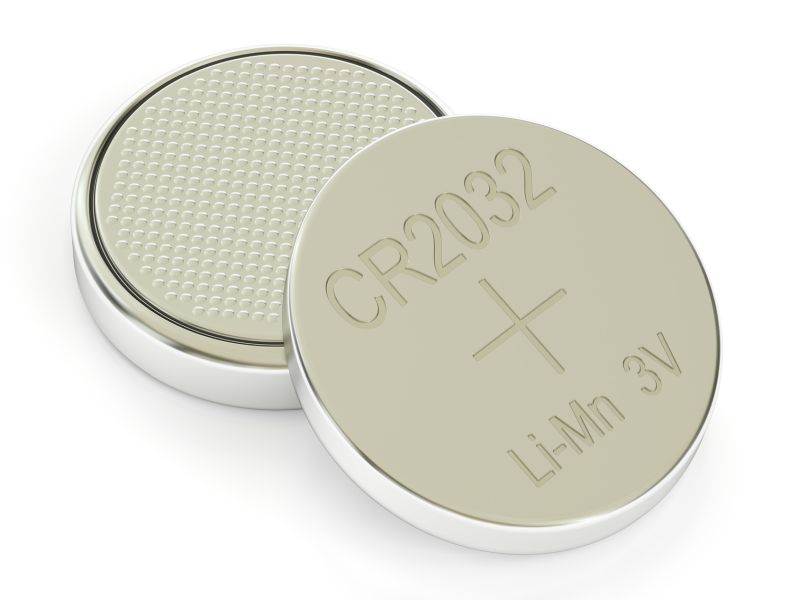

'Button' Batteries Pose Serious Risk to Children
Toddlers may swallow the tiny batteries used to power many common household objectsMonday, January 9, 2017

MONDAY, Jan. 9, 2017 (HealthDay News) -- Those tiny, common "button" batteries can pose a big threat of injury to children if swallowed, toxicologists warn.
The round batteries are used in items such as toys, musical greeting cards, remote controls, calculators, watches, key fobs, flameless candles, hearing aids, games and flashing jewelry.
"If a button battery ingestion is even suspected, quick medical evaluation should be a priority," Dr. Donna Seger said in a news release from the Tennessee Poison Center. She directs the center, located at Vanderbilt University Medical Center in Nashville.
In 2014, about 3,500 reports of people, mostly children, swallowing button batteries were reported to poison centers in the United States. Each year, more than 2,800 American children require emergency care after swallowing button batteries.
In most cases, the batteries pass through the digestive system without causing harm, the toxicologists explained. But if a button battery lodges in the esophagus, it can produce an electrical current that burns through tissue and major blood vessels in the neck. Some children in this situation have died.
Symptoms of a button battery lodged in the esophagus can include chest pain or tightness, coughing, foreign body sensation or bloody vomiting.
An X-ray is recommended as soon as someone swallows a button battery, according to the poison center.
Prevention is the best approach. Keep items with button batteries out of the reach of children, the toxicologists said.
SOURCE: Vanderbilt University Medical Center, news release
HealthDay
Copyright (c) 2017 HealthDay. All rights reserved.
News stories are written and provided by HealthDay and do not reflect federal policy, the views of MedlinePlus, the National Library of Medicine, the National Institutes of Health, or the U.S. Department of Health and Human Services.
- More Health News on:
- Child Safety




























.png)











No hay comentarios:
Publicar un comentario